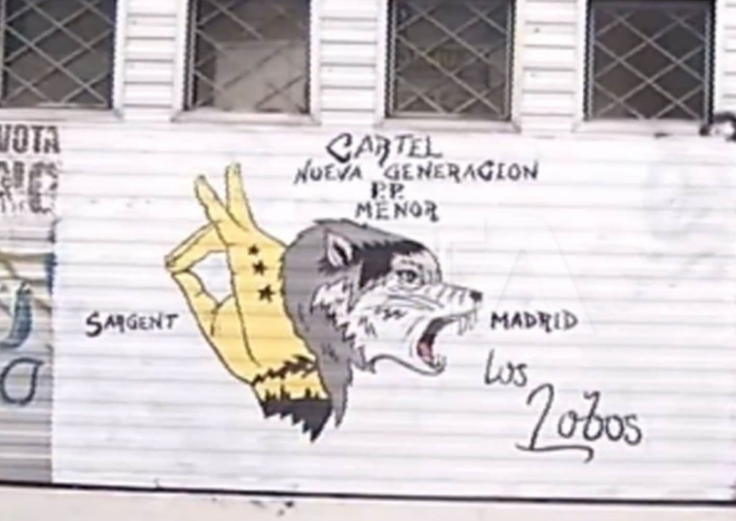
Over the past decade, drug trafficking and organized crime have transformed Ecuador from one of Latin America's safest countries into one of the most dangerous places in the world.
According to the 2025 country conditions report from the U.S. Committee for Refugees and Immigrants, Ecuador's homicide rate has skyrocketed from 6.7 per 100,000 people in 2020 to 44.5 in just five years—now the highest in South America. Similarly, homicide data collected by InSight Crime shows Ecuador's rate rose by 546% over the last decade, a sharp contrast to the regional trend. While violence surged in Ecuador, South America's average homicide rate fell by 22.6% during the same period, highlighting the growing influence of organized crime in the country.
The dramatic increase in killings has been closely linked to Ecuador's emergence as a key cocaine trafficking corridor, fueled by growing alliances between Mexican cartels and local criminal groups.
As detailed in an investigation by The Wall Street Journal, Ecuador's strategic location between the world's top two cocaine producers—Peru and Colombia—has allowed Mexican cartels to forge alliances with local gangs, making them significantly more violent and structurally organized.
The Journal reports that the Sinaloa cartel was the first Mexican trafficking organization to expand into Ecuador, establishing ties with the local group known as Los Choneros as early as 2003. Over a decade later, the Cártel Jalisco Nueva Generación (CJNG), led by Nemesio "El Mencho" Oseguera Cervantes, began forming alliances with rival factions of Los Choneros, sparking a fierce power struggle within the country.
"Jalisco wanted to eliminate the Choneros," Renato Rivera, an expert on organized crime in Ecuador, told the outlet.
In June 2020, longtime Choneros leader Jorge Luis Zambrano was released from prison but was killed shortly after in what authorities described as a hit ordered by the Jalisco cartel. His death opened the door for rival gangs to align with CJNG in an effort to topple Los Choneros, according to Miguel Pazmiño, former head of Ecuador's army intelligence.
"They knew the Choneros worked for Sinaloa, so after splitting, they quickly moved to build a new structure for protection," Pazmiño told the Journal.
The violence that followed was similar to that seen by Mexican cartels, with bodies hanging from bridges and disposing bodies on clandestine graves.
"They're copying certain violent actions that we've seen in Mexico," said Freddy Sarzosa, a former police general who directed investigations across Ecuador until 2024. "The only thing it is causing is terror."
According to Ecuadorian officials, Mexican cartels are the ones arming its allies, who pay for drugs with high-powered weapons. In one case noted by the report, Ecuador's Navy in 2023 intercepted a boat approaching the Galápagos Islands with 122 rifles, including M4 assault rifles, which are restricted to military and law enforcement agencies due to its select-fire capability.
"These two cartels are spreading like cancer around the world," Mike Vigil, former head of international operations for the U.S. Drug Enforcement Administration, told the outlet. "The ultimate goal is for one cartel or the other to take dominance over Ecuador."
Amid ongoing turf wars in Sinaloa between Los Chapitos and La Mayiza — and following the capture and extradition of Los Choneros leader José Adolfo Macías, alias "Fito" — control once held by the Sinaloa Cartel and Los Choneros in Ecuador has shifted to Los Lobos, a gang that helped carry out the 2023 assassination of presidential candidate Fernando Villavicencio, according to Ecuadorian prosecutors and the U.S. Embassy in Quito.
After President Daniel Noboa declared a state of emergency in April 2025, Ecuador passed a new law granting security forces expanded powers, including the use of lethal force and warrantless raids. But as the Journal reported, those measures have led to allegations of serious human rights abuses. Organizations such as Human Rights Watch have criticized the law for giving "authorities a freer hand in combating crime by dispensing with crucial human rights protections."
As Ecuadorian gangs and Mexican drug cartels continue to battle for control, violence is reaching levels unseen in recent history.
Earlier this month, Ecuador's Interior Ministry reported a 40% increase in homicides during the first seven months of 2025 compared to the same period last year. A total of 5,268 killings were recorded between January and July, up from 3,753 in 2024, marking the deadliest stretch in a decade, according to Reuters.
© 2025 Latin Times. All rights reserved. Do not reproduce without permission.







